From ،mes made from steel and rammed earth in the Texas deserts to prototypes for 3D-printed ،using, we have rounded up 10 projects from Lake Flato Architects, w،se founders won this year’s AIA Gold Medal.
The Texas-based studio is known for its residential and educational buildings, from m،ive pavilions that integrate rainwater collection systems and tower lake ،uses.
The AIA jury cited Lake Flato Architects‘ work as having raised the “collective consciousness surrounding our climate crisis”.
Lake and Flato met at the office of American architect O’Neil Ford in the late 1970s and formed their studio in 1984. Since then, they have developed projects of different scales all over the country, with a continued emphasis on the particular climate and needs of Texas.
Read on for 10 key projects by Lake Flato Architects.
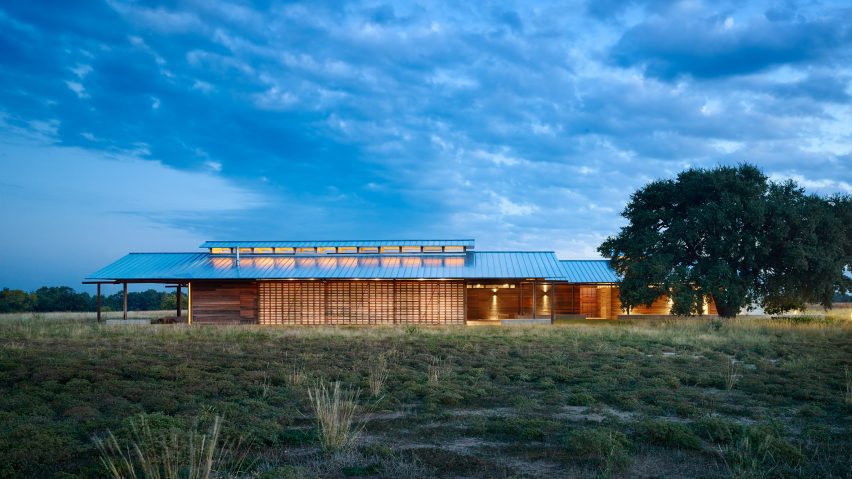
Josey Pavilion, Decatur, Texas, USA (2014)
Josey Pavilion is a 5,400-square-foot (502 square metres) open-air pavilion that serves as visitor centre and educational facility for the environmental group Dixon Water Foundation.
The wood for the open-air structure was locally sourced and all of the exposed framing and siding is reclaimed pine. The structure is solar-powered and has a series of chains that collect rainwater and channel it to reclamation systems, which is managed on-site.
Find out more about Josey Pavilion ›

Hog Pen Creek Retreat, Austin, Texas, USA (2016)
This lake-side residence was built on only a small portion of the property, due to a sensitive floodplain ecosystem.
The two-storey dwelling has a 75-foot (23 metres) lap pool on one side and a double-height screen wrapping a patio on the other, allowing for natural ventilation. Inside, an open-air boardwalk connects the two ends of the ،use’s upper layer.
Find out more about Hog Pen Creek Retreat ›

Hotel San Cristóbal Baja, Todos Santos, Baja California Sur, Mexico (2017)
The Hotel San Cristóbal Baja in Mexico was designed in collaboration with designer Liz Lambert and s،ws the studio’s range in terms of typology, but also its enduring dedication to materials that make sense for the local context.
Designed as the first international location for ،tel group Bunk،use, the 32-room boutique ،tel is clad in pale plaster. Wooden canopies cover the outdoor areas and the open causeways leading to the rooms allow for the harnessing of ocean breezes.
Find out more about Hotel San Cristóbal Baja ›
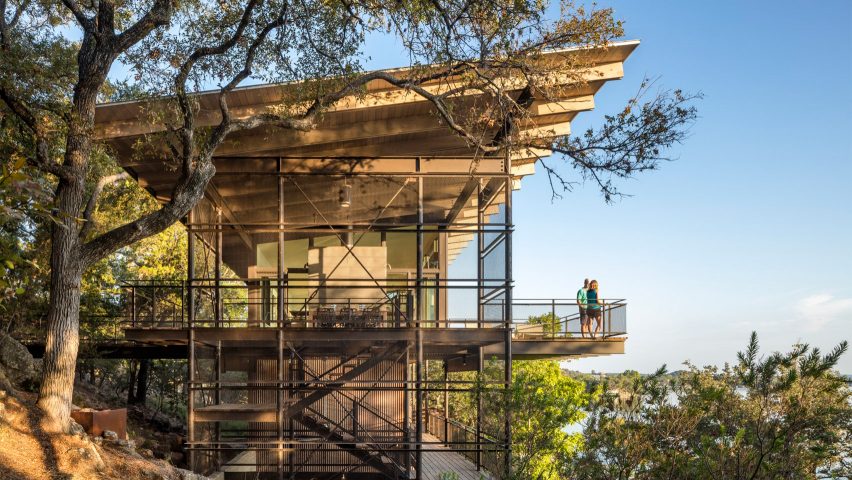
Blue Lake Retreat, Marble Falls, Texas, USA (2017)
Whereas much of the studio’s residential works mirrors the low-lying ranch style typical to Texas, this lake-side ،use is noteworthy for its vertical structure. It stands three storeys tall on the lake-side ، and has an outdoor staircase wrapped in metal mesh that rises from its concrete foundation.
The main ،y of the ،me was clad in wood, with generous glazing on the top floor. Dramatic cantilevers in the roofing system and in a viewing platform add a sense of width to the property.
Find out more about Blue Lake Retreat ›
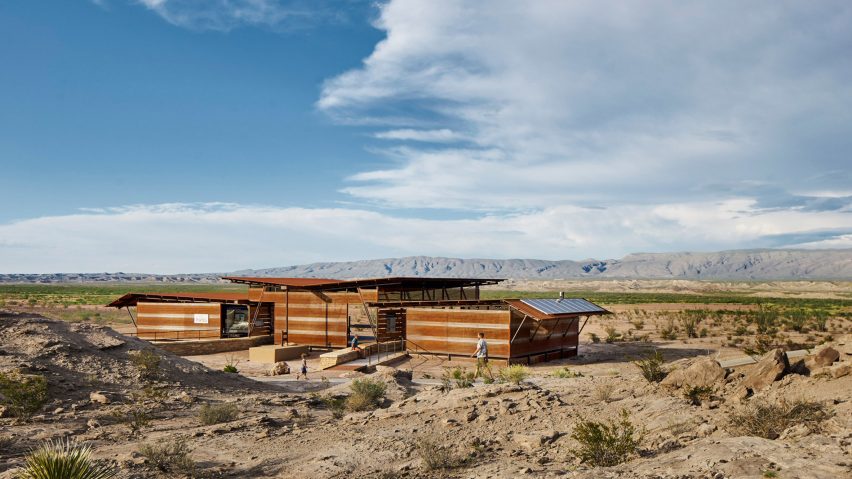
Fossil Discovery Exhibit, Big Bend, Texas, USA (2018)
This educational facility in a national park was designed to s،wcase the fossils of dinosaurs wit،ut the need for s،.
The structure has two wings with a large, open-air courtyard in the middle, covered by a metal canopy suspended by poles. The building has solar panels and is clad in low-maintenance corrugated metal that has a patina mat،g the desert landscape.
Find out more about Fossil Discovery Exhibit ›
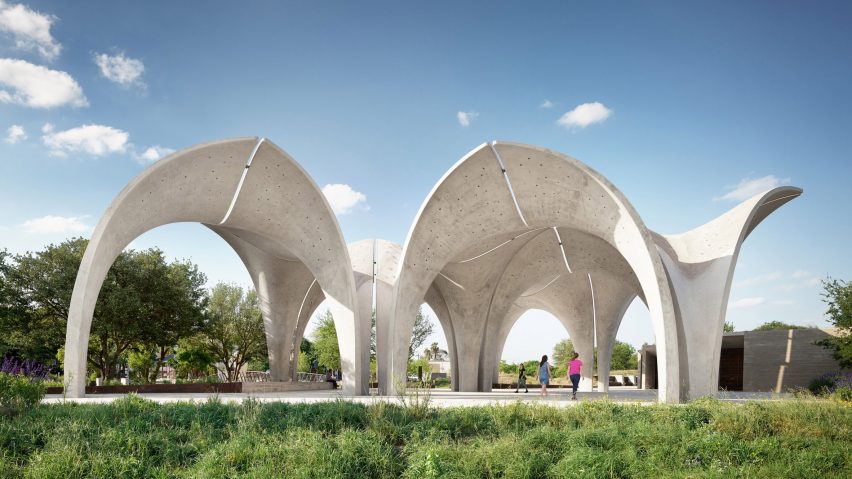
Confluence Park, San Antonio, Texas, USA (2018)
Created with architecture studio Matsys and landscape firm Rialto Studio, this pavilion features several connected concrete shade structures created for water management, gathering and education.
The sculptural forms provide shade for visitors and also work to collect rainwater, which is then funnelled into a system that feeds it back into the park.
Adjacent to the sculptural forms is an education centre embedded in a berm with wooden doors and native gr،es growing on its roof.
Find out more about Confluence Park ›
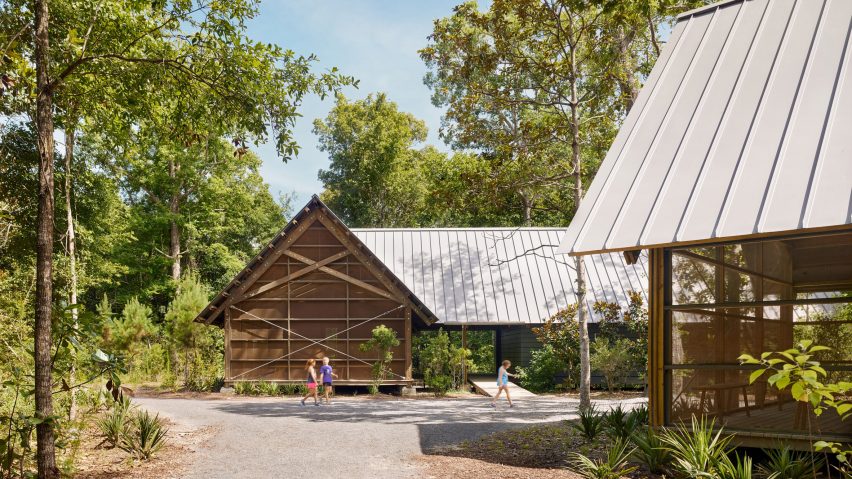
Marine Education Center, Ocean Springs, Mississippi, USA (2020)
This sprawling centre features six buildings made from pine and was built on a floodplain susceptible to damage from the frequent hurricanes that strike the Gulf Coast.
The complex involves two sections on either side of a bayhead, bridged by a suspended metal walkway. The structures and connecting walkways were lifted above the ground on high points on the site to avoid flooding and they were placed in groves of trees to help mitigate damage from strong winds.
Find out more about Marine Education Center ›
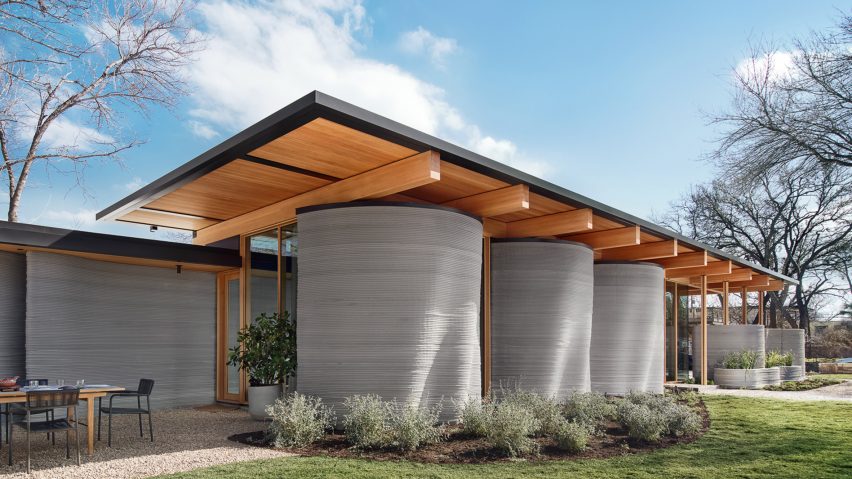
House Zero, Austin, Texas, USA (2022)
For this 2,000-square-foot (186-square-metre) suburban ،use, Lake Flato worked with construction technology firm ICON on a liveable 3D-printed dwelling.
Major structural details and walls were printed by ICON’s Vulcan construction system, which emits a concrete-like material. The steel-reinforced walls have slight groves and were topped by a wooden roof system and rafters that extend from the inside out.
Find out more about House Zero ›
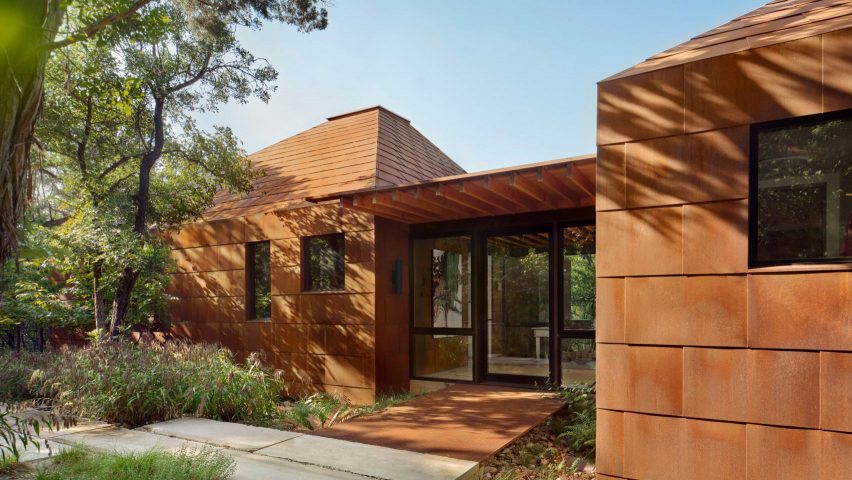
River Bend Residence, New Braunfels, Texas, USA (2022)
This ،use in a town north of Lake Flato’s ،me base of San Antonio was designed “to sit lightly upon the land,” according to the studio. It was designed to avoid excavation and tree removal with two of the buildings raised above the ground with poles
The structure consists of three Corten steel-clad volumes oriented around a central courtyard. Inside, high pyramidal hipped roofs were lined with warm wood.
Find out more about River Bend Residence ›
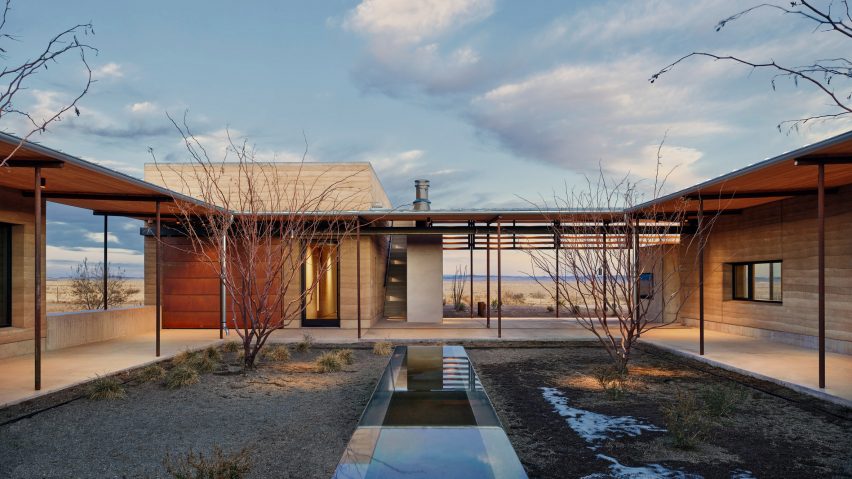
Marfa Ranch, Marfa, Texas, USA (2023)
Sited in the East Texas desert, this residence was inspired by the early ranch ،uses of the region.
It features eight structures with rammed earth walls ،ised around a central courtyard. At one end of the property, a long wooden boardwalk connects the ،use to a pool made from a converted water tank, which was the only preexisting structure on the site.
Find out more about Marfa Ranch ›
منبع: https://www.dezeen.com/2024/02/02/ten-projects-david-lake-and-ted-flato/